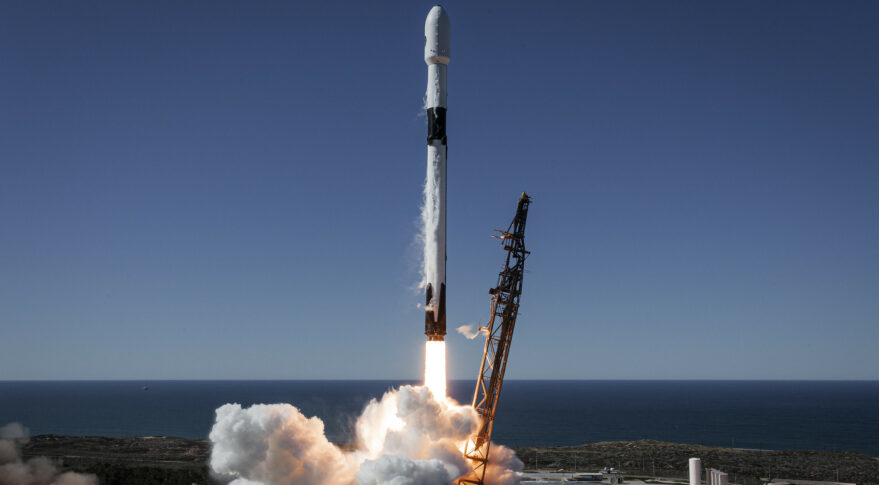WASHINGTON — House Armed Services Committee Chairman Rep. Adam Smith (D-Wash.) in a draft version of the 2023 National Defense Authorization Act pushes for changes in military launch services procurement, calling on the Space Force to replace the current two-vendor strategy with an open competition model.
Smith’s version of the NDAA, or chairman’s mark, is scheduled to be released June 20 and the full committee will mark up the bill June 22.
The chairman’s mark brings up concerns Smith has expressed previously about creating opportunities for new players to compete in the National Security Space Launch (NSSL) program. The HASC leader has been critical of the two-vendor model preferred by the Space Force, which in 2020 awarded United Launch Alliance and SpaceX five-year NSSL Phase 2 contracts to launch collectively as many as 35 NSSL missions.
The language in the 2023 NDAA urges the Space Force to consider other procurement approaches in Phase 3 of the NSSL program in 2024 so more than two companies can win launch contracts.
“It is the sense of Congress that the acquisition approach for Phase 3 of the National Security Space Launch program should account for changes in the launch industry and planned architectures of the Space Force,” according to a draft version of the chairman’s mark, a copy of which was obtained by SpaceNews.
The Space Force should “explore new and innovative acquisition approaches to leverage launch competition within the commercial market,” says the draft bill.
With more companies competing in the commercial launch market, the bill says, the Defense Department should “examine all possible options for awarding contracts for launches during the period covered by the phase, including block buys, indefinite delivery, indefinite quantity, or a hybrid approach.”
Rather than limit launches to the two selected providers, as in Phase 2, Smith suggests including options to add launch providers and launch systems during the period of performance of Phase 3 so the military can take advantage of emerging technologies in areas like in-space transportation, logistics and on-orbit servicing.
The bill also recommends the Space Force buy launch services from commercial vehicles that can perform missions beyond the nine reference orbits around the Earth required for Phase 2 of the NSSL program. The Space Force in Phase 3, says the chairman’s mark, should include vehicles with high-performance upper stages, payload fairings that exceed current launch requirements and vehicles with increased heavy lift capability.
The HASC bill requires the Space Force to provide quarterly updates to congressional committees on the Phase 3 acquisition strategy.
If the HASC provisions become law, they would likely help Blue Origin, Jeff Bezos’ space company based in Smith’s home state. The company, which competed unsuccessfully for an NSSL Phase 2 launch services procurement contract, is developing New Glenn, a huge rocket with a much larger payload fairing than current launch vehicles, projected to have an advanced upper stage to reach high-energy orbits.
During a hearing in April, Smith pressed Chief of Space Operations Gen. John “Jay” Raymond to shed light on the Space Force’s future plans to buy space launch services. Raymond said the Space Force might consider working with more than two companies,
Smith at the hearing said: “There are so many companies, certainly the big ones that we’ve heard about, SpaceX, Blue Origin, and others, but then probably a dozen others that are smaller. And if we can encourage that competition, I think we can get a better product for a better price. So I want to make sure we do that.”

